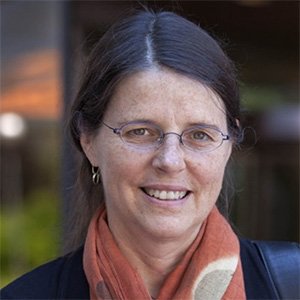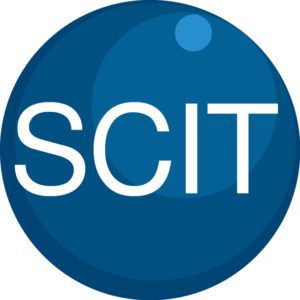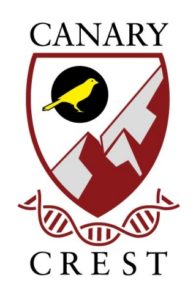
Alex K. Shalek, PhD
Pfizer-Laubach Career Development Associate Professor
Institute for Medical Engineering & Science
Department of Chemistry and Koch Institute
Massachusetts Institute of Technology
Abstract: While several methods exist for sampling tissues in clinical contexts, without high-fidelity tools for comprehensively profiling them, we are both limited in our capacity to understand how constituent cells and their interactions impact prognosis, and to select and develop precision therapeutics. Recent years have witnessed transformative and intersecting advances in nanofabrication and molecular biology that now enable deep profiling of low-input samples. Collectively, these afford new and exciting opportunities to study cellular heterogeneity, starting from the level of the single cell, and may unlock the diagnostic, prognostic, and discovery potential of clinical isolates. Illustratively, I will introduce how we can leverage single-cell genomic approaches – and, in particular, single-cell RNA-Seq – to explore the extensive functional diversity between cells, uncovering, from the “bottom-up,” distinct cell states and their molecular drivers. Moreover, I will discuss high-throughput experimental strategies and demonstrate, in the context of Acute Lymphoblastic Leukemia, how they can be leveraged to achieve the statistical power necessary to reconstruct intracellular circuits, enumerate and redefine cell states and types, and transform our understanding of cellular decision-making in health and disease on a genomic scale.
Bio: Alex K. Shalek is currently the Pfizer-Laubach Career Development Associate Professor at MIT, as well as a Core Member of the Institute for Medical Engineering and Science (IMES), an Associate Professor of Chemistry, and an Extramural Member of The Koch Institute for Integrative Cancer Research. He is also an Institute Member of the Broad Institute, an Associate Member of the Ragon Institute, an Assistant in Immunology at MGH, and an Instructor in Health Sciences and Technology at HMS. His research is directed towards the development and application of new technologies that facilitate understanding of how cells collectively perform systems-level functions in healthy and diseased states. Dr. Shalek received his bachelor’s degree summa cum laude from Columbia University and his Ph.D. from Harvard University in chemical physics under the guidance of Hongkun Park, and performed postdoctoral training under Hongkun Park and Aviv Regev (Broad/MIT). To date, his interdisciplinary research has focused on realizing and utilizing nanoscale manipulation and measurement technologies to examine how small components (molecules, cells) drive systems of vast complexity (cellular responses, population behaviors).

Cancer Early Detection Seminar
“Best Practices in Hip Imaging”
Michael Shen, PhD
Professor of Medicine, Genetics and Development, Urology and Systems Biology
Columbia University Medical Center
ABSTRACT
TBD
_____________________________________________
Hosted by
Sanjiv Sam Gambhir, MD, PhD<https://med.stanford.edu/profiles/sanjiv-gambhir>
Sponsored by
The Canary Center and the Stanford Cancer Institute
Stanford University
If you would like to be included on the email distribution list for weekly reminders, contact Ashley Williams (ashleylw.at.stanford.edu)
RSVP and more info at: https://www.onlineregistrationcenter.com/register/222/page1.asp?m=298&c=41

CEDSS: “Strategies to Identify Aggressive Breast Cancer Biology in Black and Latina Women”
Victoria Seewaldt, MD
Ruth Ziegler Professor and Chair, Department of Population Sciences
Associate Director for Population Sciences Research, Comprehensive Cancer Center
City of Hope
Beckman Center, Munzer Auditorium (B060)
11:00am – 12:00pm Seminar & Discussion
12:00pm – 12:15pm Reception & Light Refreshments
RSVP here: https://www.onlineregistrationcenter.com/VictoriaSeewaldt
ABSTRACT
Over 90% of breast cancer is cured; yet there remain highly aggressive breast cancers that develop rapidly and are extremely difficult to treat, much less prevent. Examples are triple-negative breast cancer in Black/African American women and luminal B breast cancers in Black/African Americans and Latinas. Breast cancers that rapidly develop between breast imaging are called “interval cancers”. Here we aim to investigate biologically aggressive precancerous breast lesions and their matched invasive breast cancers in women of diverse race and ethnicity. Our team has the unique ability to perform single cell in situ transcriptional profiling in combination with dynamic and spatial genomics/proteomics; this allows us to identify multi-dimensional spatial and temporal relationships that drive the transition from biologically aggressive pre-cancer to interval breast cancer.
ABOUT
Victoria Seewaldt, M.D., is an accomplished clinician and researcher who’s devoted to improving the lives of her patients and the community at large. She has led community outreach education efforts on cancer prevention through personal wellbeing and directed research aimed at finding biomarkers that can be used for early cancer detection, particularly triple-negative breast cancers that are especially resistant to treatment.
At City of Hope, Dr. Seewaldt will direct efforts to provide breast cancer education, free breast cancer screening and treatment, mentorship of young minority scholars, and a forum for community partnered trials. Clinically, Dr. Seewaldt aims to empower women at high breast cancer risk to be full partners in developing wellness strategies to promote personal health.
Dr. Seewaldt received her medical degree from the University of California, Davis, and completed her residency and clinical fellowship at the University of Washington in Seattle. She then pursued a medical oncology fellowship with the Fred Hutchinson Cancer Research Center and then became an assistant professor at Ohio State University. Afterwards, she transferred to Duke University, where she held various clinical, academic and leadership roles in its School of Medicine and Comprehensive Cancer Center — most recently as a professor, co-leader of the breast and ovarian cancer program and head of the cancer breast prevention program — before joining City of Hope.

Muna Aryal Rizal, PhD
Mentor: Jeremy Dahl, PhD and Raag Airan, MD, PhD
Noninvasive Focused Ultrasound Accelerates Glymphatic Transport to Bypass the Blood-Brain Barrier
ABSTRACT
Recent advancement in neuroscience revealed that the Central Nervous System (CNS) comprise glial-cell driven lymphatic system and coined the term called “Glymphatic pathway” by Neuroscientist, Maiden Nedergaard. Furthermore, it has been proven in rodent and non-human primate studies that the glymphatic exchange efficacy can decay in healthy aging, alzheimer’s disease models, traumatic brain injury, cerebral hemorrhage, and stroke. Studies in rodents have also shown that the glymphatic function can accelerate by doing easily-implemented, interventions like physical exercise, changes in body posture during sleep, intake of omega-3 polyunsaturated fatty acids, and low dose alcohol (0.5 g/kg). Here, we proposed for the first time to accelerate the glymphatic function by manipulating the whole-brain ultrasonically using focused ultrasound, an emerging clinical technology that can noninvasively reach virtually throughout the brain. During this SCIT seminar, I will introduce the new ultrasonic approach to accelerates glymphatic transport and will share some preliminary findings.
Eduardo Somoza, MD
Mentor: Sandy Napel, PhD
Prediction of Clinical Outcomes in Diffuse Large B-Cell Lymphoma (DLBCL) Utilizing Radiomic Features Derived from Pretreatment Positron Emission Tomography (PET) Scan
ABSTRACT
Diffuse Large B-Cell lymphoma (DLBCL) is the most common type of lymphoma, accounting for a third of cases worldwide. Despite advancements in treatment, the five-year percent survival for this patient population is around sixty percent. This indicates a clinical need for being able to predict outcomes before the initiation of standard treatment. The approach we will be employing to address this need is the creation of a prognostic model from pretreatment clinical data of DLBCL patients seen at Stanford University Medical Center. In particular, there will be a focus on the derivation of radiomic features from pretreatment positron emission tomography (PET) scans as this has not been thoroughly investigated in similar published research efforts. We will layout the framework for our approach, with an emphasis on the aspects of our design that will allow for the translation of our efforts to multiple clinical settings. More importantly, we will discuss the importance and challenges of assembling a quality clinical database for this type of research. Ultimately, we hope our efforts will lead to the development of a prognostic model that can be utilized to guide treatment in DLBCL patients with refractory disease and/or high risk of relapse after completion of standard treatment.

Please note this seminar is now cancelled and will be rescheduled for a future date. Please contact Ashley Williams (ashleylw@stanford.edu) with any questions or concerns. Thank you for your understanding!
CEDSS: “The First Cell and the Human Cost of going after Cancer’s last”
Chan Soon-Shiong Professor of Medicine
Director, Myelodysplastic Syndrome Center
Columbia University Medical Center

“Tumor-Immune Interactions in TNBC Brain Metastases”
Maxine Umeh Garcia, PhD
ABSTRACT: It is estimated that metastasis is responsible for 90% of cancer deaths, with 1 in every 2 advanced staged triple-negative breast cancer patients developing brain metastases – surviving as little as 4.9 months after metastatic diagnosis. My project hypothesizes that the spatial architecture of the tumor microenvironment reflects distinct tumor-immune interactions that are driven by receptor-ligand pairing; and that these interactions not only impact tumor progression in the brain, but also prime the immune system (early on) to be tolerant of disseminated cancer cells permitting brain metastases. The main goal of my project is to build a model that recapitulates tumor-immune interactions in brain-metastatic triple-negative breast cancer, and use this model to identify novel druggable targets to improve survival outcomes in patients with devastating brain metastases.
“Classification of Malignant and Benign Peripheral Nerve Sheath Tumors With An Open Source Feature Selection Platform”
Michael Zhang, MD
ABSTRACT: Radiographic differentiation of malignant peripheral nerve sheath tumors (MPNSTs) from benign PNSTs is a diagnostic challenge. The former is associated with a five-year survival rate of 30-50%, and definitive management requires gross total surgical with wide negative margins in areas of sensitive neurologic function. This presentation describes a radiomics approach to pre-operatively identifying a diagnosis, thereby possibly avoiding surgical complexity and debilitating symptoms. Using an open-source, feature extraction platform and machine learning, we produce a radiographic signature for MPNSTs based on routine MRI.

